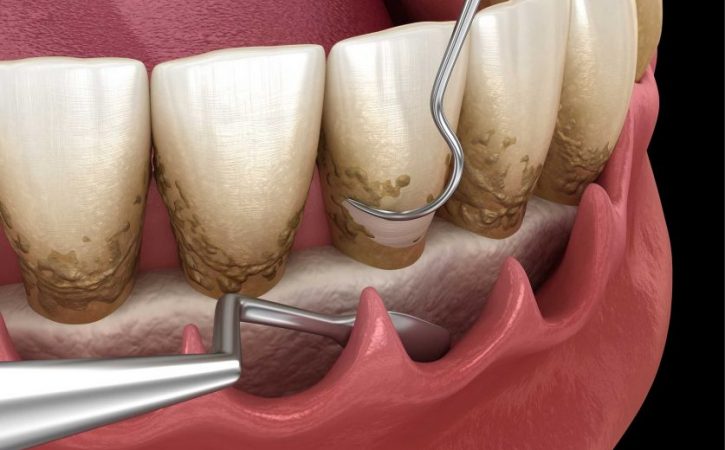Dental deep cleaning can remove the buildup of germs, bacteria, plaque, and tartar from your teeth. It also promotes gum health and reduces inflammation. Plaque is a sticky substance created when the food particles mix with the saliva and contain bacteria and germs. You can remove the plaque that forms daily by brushing your teeth. However, regular cleaning and brushing do not remove all the plaque left between your teeth. The leftover plaque calcifies and hardens, which is known as tartar.
According to the best orthodontist Miami, the buildup of plaque and tartar can lead to gum disease. It includes gingivitis, which is inflammation of the gums. If you don’t treat gingivitis in the early stage, it could cause severe infection or tooth loss.
What are the advantages or benefits of deep dental cleaning?
If gum disease causes your gums to move away from your teeth, creating a space of more than five millimeters, you may need a deep cleaning. If your gum disease grows, the gap or space between your teeth and gums may grow even more. It can cause loose teeth or tooth loss by weakening the bones that support your teeth. If your dentist suggests a deep cleaning, deep cleaning teeth have several advantages.
- Treating the current infection or decay and promoting healing
- Stopping the advancement of gingivitis or gum inflammation
- Cleaning your teeth thoroughly above and below the gum line
- Protecting the tooth roots and tissues
- Eliminating foul breath caused by gum diseases
- According to a dentist orthodontist, deep tooth cleaning Prevents tooth loss.
What are the significant cons or disadvantages of deep dental cleaning?
Like any other dental procedure, deep cleaning teeth also have some disadvantages. Disadvantages of deep cleaning teeth include
- This procedure does not guarantee the reattachment of your gum to your teeth.
- A frequent deep dental cleaning can cause nerve damage
- It may cause your gums to recede
- It can cause infection if you have a weak immune system
- Pain and sensitivity usually last for five to seven days.
- Dental deep cleaning cost is higher than regular cleaning.
How to reduce the pain and sensitivity after a deep dental cleaning procedure?
- Soft meals like yogurt, applesauce, or mashed potatoes can help minimize sensitivity for a few days after your treatment. It would be best to avoid edibles and beverages that are unusually hot or cold such as coffee, tea, wine, or cola.
- You can reduce the inflammation by using over-the-counter pain relievers such as acetaminophen and ibuprofen and washing with warm saltwater.
- Regular brushing and flossing can help in promoting healing and minimizing gum inflammation. Brush your teeth at least twice a day using a soft-bristle toothbrush, and floss at least once a day.
- If the pain and sensitivity do not reduce in a week, then call your orthodontist or visit your nearest dentist’s office for the treatment.
Conclusion
We hope that the above-given information helps you learn more about deep dental cleaning. In the above-given matter, we discuss the essential things you should know about deep dental cleaning, the advantages of deep teeth cleaning, the disadvantages, and more. For further information regarding deep dental cleaning, contact ivanovortho.com.
- SHARES







